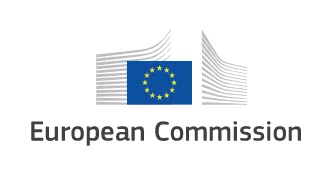
SEMI members in Europe face tough barriers to meeting legal requirements for posted workers, a struggle that undermines their competitiveness. The European Union (EU) defines a posted worker as an employee dispatched by his or her employer to carry out a service in another EU Member State on a temporary basis, in the context of a contract of services, an intra-group posting or a hiring out through a temporary agency.
Sound clear? Maybe so, but the thicket of legal requirements electronics manufacturers across Europe must wade through has become a major headache for the industry. Posting workers in Europe is time-consuming and bureaucratic, hampering the ability of Europe to compete on the world stage of microelectronics and imperiling the EU as a single, unified market.
Take, for example, a European semiconductor equipment manufacturer located in one EU Member State sending a highly qualified engineer to another to provide technical assistance to a customer. For the engineer, travelling to the other Member State seems easy and straightforward. Not so.
 Before the engineer catches a flight or train, authorities in the Member State where the assignment is to be performed must be notified of the posting. The problem is that posting a worker to a customer facility is often fraught with red tape and delays. In the fast-paced world of microelectronics and nanoelectronics, flexibility and timely service are key for European suppliers to remain competitive. Delays in a maintenance or repair service can bring production to a halt, affecting businesses across the supply chain in a ripple effect.
Before the engineer catches a flight or train, authorities in the Member State where the assignment is to be performed must be notified of the posting. The problem is that posting a worker to a customer facility is often fraught with red tape and delays. In the fast-paced world of microelectronics and nanoelectronics, flexibility and timely service are key for European suppliers to remain competitive. Delays in a maintenance or repair service can bring production to a halt, affecting businesses across the supply chain in a ripple effect.
SEMI member communications with authorities in Member States where posted workers are needed can also be a struggle due to strict requirements allowing communications only in the local language. For example, various documents ranging from salary statements to business contracts must be translated as part of the notification process. For businesses providing services in multiple EU Member States, translations can increase costs dramatically. Worse still, some Member States rely on cumbersome paper-based processes prone to errors and inefficiencies even as many electronics manufacturers use fully digital human resources databases.
 During the posting period, all translated documents ranging from time sheets to salary payments are subject to inspections by the local authority, thickening the tangle of bureaucracy. One engineer might be posted multiple times to an EU Member State, requiring registration with each posting, a process that increases the administrative burden with no sound reason.
During the posting period, all translated documents ranging from time sheets to salary payments are subject to inspections by the local authority, thickening the tangle of bureaucracy. One engineer might be posted multiple times to an EU Member State, requiring registration with each posting, a process that increases the administrative burden with no sound reason.
What’s more, in some Member States electronics manufacturers must designate a person the local authority can contact for the full duration of the posting. Because many electronics manufacturers are SMEs without branches in other Member States, they must assign a professional third party as a contact point – yet another hurdle that not only drives up costs and increases the administrative burden but also obliges businesses to divulge confidential business information such as employee salaries with a third party.
In response, SEMI has sent the following recommendations to the European Commission to ease the posting of workers in the EU:
- In electronics manufacturing, most services are completed within a week. Therefore, mandatory notifications should be removed for workers posted for less than a week.
- The requirement to re-notify and re-register the same posted worker for each posting should be eliminated. Once registered, the worker should be posted without prior notification for one year.

- Regulatory documentation for posted workers should be harmonized across the EU using a standardized digital platform with minimum translation requirements.
- For companies with no local branch in Member States where posted workers are assigned, contact points should be designated in the Member State where the company posting a worker is legally established.
- Non-EU nationals who are legal residents and work in an EU Member State should not be subject to notification and registration requirements exceeding those for posted workers of EU nationality.
- All EU Member States should agree to the definition of a posted worker as those assigned only to assembly, maintenance and related tasks.
The vital importance of posted workers to Europe’s electronics manufacturers cannot be overemphasized. With an export rate of 75 percent on average, SEMI members in Europe and the electronics manufacturing industry in general heavily rely on cross-border supply chains, access to foreign markets and export (intra- and extra-EU). The sector produces semiconductor manufacturing equipment and other highly sophisticated electronics products that are capital- and knowledge-intensive and often have long service lives. The complexity of these products requires assembly and regular after-sales, repair and maintenance services, led by a highly trained engineer, that are core to the business of any electronics manufacturer. In the fiercely competitive global electronics industry, quick response to customer requests is critical to their success.
In this light, SEMI urges the EU and Member States to act quickly in removing barriers to posted workers and protect the EU’s own industrial competitiveness.
Emir Demircan is director of Public Policy at SEMI Europe. Contact Emir at edemircan@semi.org , 0032484903114.